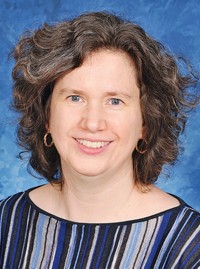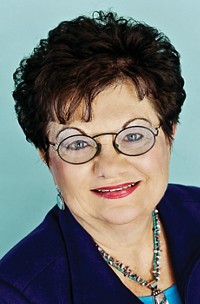Advertisement
Grab your lab coat. Let's get started
Welcome!
Welcome!
Create an account below to get 6 C&EN articles per month, receive newsletters and more - all free.
It seems this is your first time logging in online. Please enter the following information to continue.
As an ACS member you automatically get access to this site. All we need is few more details to create your reading experience.
Not you? Sign in with a different account.
Not you? Sign in with a different account.
ERROR 1
ERROR 1
ERROR 2
ERROR 2
ERROR 2
ERROR 2
ERROR 2
Password and Confirm password must match.
If you have an ACS member number, please enter it here so we can link this account to your membership. (optional)
ERROR 2
ACS values your privacy. By submitting your information, you are gaining access to C&EN and subscribing to our weekly newsletter. We use the information you provide to make your reading experience better, and we will never sell your data to third party members.
Careers
ACS Launches New Vision
Intensive planning, member input set direction of society for the future
by Linda R. Raber
March 27, 2006
| A version of this story appeared in
Volume 84, Issue 13
"Improving people's lives through the transforming power of chemistry" is the ACS vision, which will be officially—and prominently—launched at the ACS national meeting in Atlanta this week. The product of more than a year of study and discussions at all levels of the society, the vision is one that "we can all fall in love with," says Madeleine Jacobs, ACS executive director and chief executive officer.
According to ACS President E. Ann Nalley, "We want the vision to be synonymous with chemists and chemistry, to be what we reach for as a society, a profession, and an individual practitioner."
But what is a vision statement? The concept of a vision statement is not as familiar as, say, the concept of a mission statement, and the process of creating it is not as familiar as that of preparing a strategic plan. Coming to the new ACS vision with these as approximations puts you in the right neighborhood but looking at very different real estate.
It is easier to explain first what a vision statement is not. "It is not a mission statement, it's not a brand, and it's not a slogan. It's an aspirational vision of the future," Jacobs says. "A vision statement is about an aspiration. It is a mental image of where you want to be." A vision is "what you want to become, where you want to go???it's a point in time," ACS Chief Strategy Officer David Schutt adds.
The vision statement and the vision field, which elaborates on the statement, are the culmination of meetings that began in mid-2004. Throughout the latter part of that year, the ACS Board Committee on Planning wrestled with developing a vision statement and asked staff for a few proposals. By December, and with the staff-generated proposals, the board and committee were unable to reach a consensus on a vision and agreed that a more formal, structured process was needed for the exercise to be successful.
Informing this process was an assessment of the current state of the society and its past goals and objectives, Schutt says. "Our historical vision has been to be the number one chemical information provider and the premier membership organization for chemists and chemical engineers. I believe that was a wonderful vision 15 or 20 years ago, and we, for the most part, have achieved that," he says. "To me, that's no longer aspiring; that's staying the same."
Part of the process of developing the new ACS vision, which was shepherded by Touchstone Consulting Group Inc., a Washington, D.C., consulting group, consisted of a May 2005 staff retreat to brainstorm "five conversations." These conversations consisted of the following questions: What is our current state? Why should we change? What vision inspires us? How will we realize our vision? And what could make our vision difficult to achieve?
Through these intensive conversations, a vision hypothesis???a trial vision statement???was developed. This hypothesis was tested and refined with the aid of ACS members' input, which was broadly solicited.
This input was crucial. "The current ACS Board has a very deep-seated desire to have real member involvement and is exceptionally focused on member involvement," Jacobs says. So computer stations called "Vision Kiosks" were set up at the ACS national meeting in Washington, D.C., last August. Through these, ACS gained member insights on 12 key areas relating to the vision hypothesis-more than 2,000 responses were received to open-ended questions about the society, its goals, and members' aspirations for the future of the society.
In October 2005, more member input was solicited through an online vision survey of more than 100,000 ACS members that sought responses to eight questions, including two open-ended questions. This survey was sent to all ACS members with e-mail addresses on file. There were more than 5,000 responses, which were coded and analyzed by Touchstone for commonalities and trends. Patterns emerged in the data, and in November, three draft vision statements were sent to the board and others for review.
At this time, the Board Planning Committee started to develop the vision field. This may be another unfamiliar term, but it's easy to understand in light of the vision statement. The vision field consists of 10 statements that provide direction toward attaining the vision. ACS Board Chair James Burke explains: "Those 10 different statements talk in a little more detail about all the people who stand to be affected directly or indirectly by this???members, employers, students, and citizens. Each statement reveals one of the ways in which we carry out our call of improving human life."
He continues, "It takes it to another level of detail and talks about developing knowledge that would be used for that end. It talks about improving the education and quality of life of chemical practitioners so that they will be better at what they do, be more motivated, and recognized for what they do." He believes that one of the strengths of the vision field is its flexibility. "It's not so confining that it's prescriptive. It appeals to the intelligence and creativity of the people involved to make it so according to their own talents and values," he says.
The audience for the vision statement is broad: "It is not just for our current members; it is for people whom we would like to become members," Jacobs says. "If you are a chemical scientist or chemical engineer practicing multidisciplinary science at the interfaces of all the exciting areas we know about, this vision speaks to you. We would hope that this vision statement will inspire you and make you want to become a part of an organization that has as its vision improving people's lives."
Although the vision statement and field are being launched with great fanfare at the ACS national meeting, chemical scientists are by no means the only ones whom ACS wants to inspire. Burke notes that the vision statement and field will be disseminated far and wide through divisions, local sections, communities, the popular media, and even in the new ACS project???high school chemistry clubs. "My hope is that students will take a look at this and realize that everything in there is positive," Burke says.
At the Atlanta meeting, the vision statement and field are included in each committee agenda, and input is requested so that even more member involvement can be reflected in the upcoming ACS strategic plan for 2007 through 2009.
"We have a wonderful message for the world," Burke says. "All too often scientists are???for whatever reason, and I think it's modesty more than anything else???unwilling to talk about the really good things that our science and the people who practice it can do. We aren't the cause of most of the problems in the world, but we can certainly help to remediate an awful lot of them."
ACS Vision
ACS Vision Statement
Improving people's lives through the transforming power of chemistry
ACS Vision Field
Our Value Proposition
We enable the integration of the sciences and enhance the effectiveness and value of scientists, engineers, educators, and others who practice and use chemistry.
We enable our members to advance their careers and become leaders of the chemistry enterprise.
Our Members/Volunteers
We are proud to be scientists, engineers, educators, and others who practice and use chemistry.
We are valued contributors to society.
Our Relationships/Partnerships
We actively promote the science and the profession.
We actively partner worldwide with other professional societies and industry to advance the sciences.
Our Image/Reputation
We are respected for our scientific expertise and professional integrity.
We increase the public's appreciation of those who practice and use chemistry, and the positive impact chemistry makes in all of our daily lives.
Our Organization/Members
We are organized to help scientists, engineers, educators, and others advance the science.
We are organized to build communities of scientists, engineers, and educators from many disciplines in order to answer questions, solve problems, create new possibilities.





Join the conversation
Contact the reporter
Submit a Letter to the Editor for publication
Engage with us on Twitter